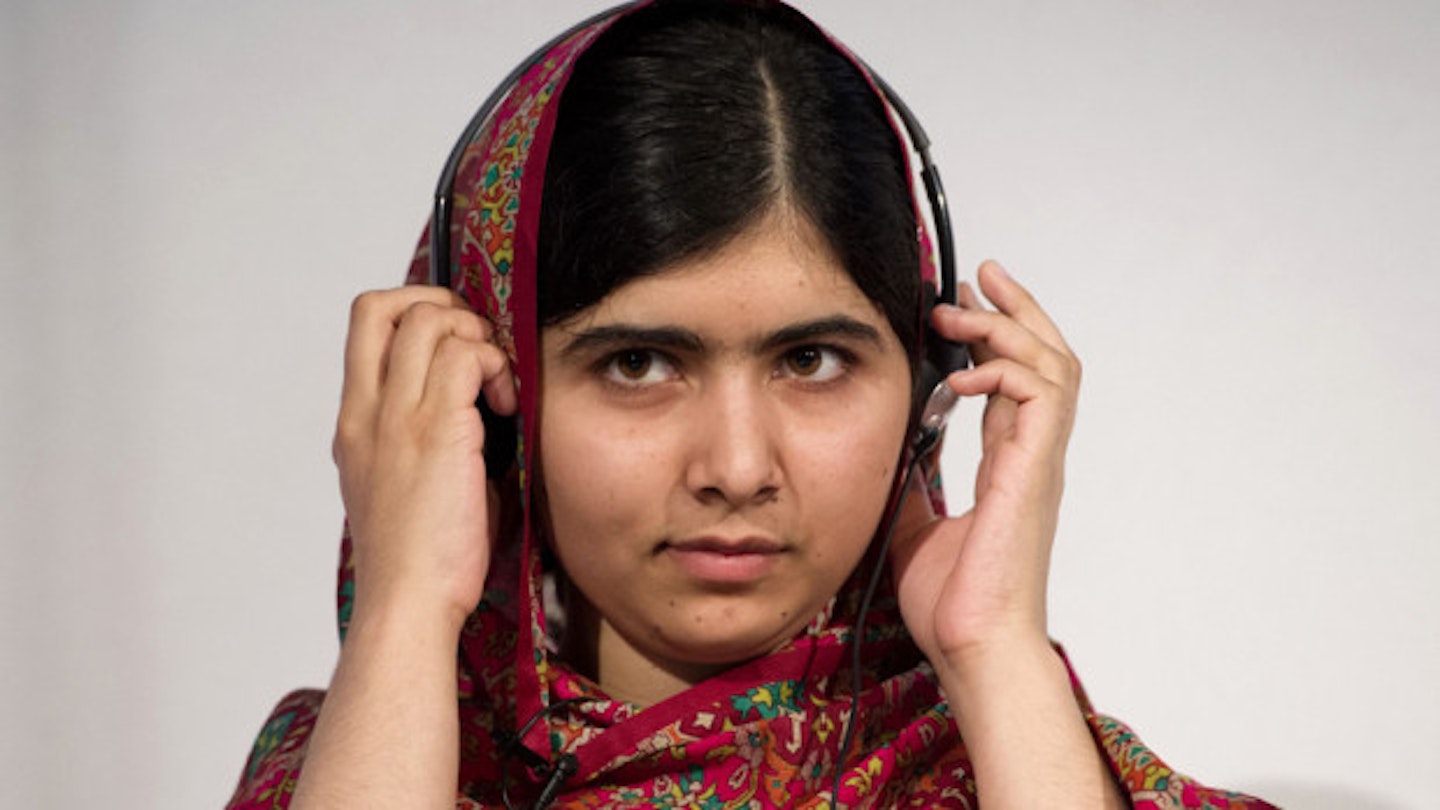We’re totally pro-Malala. We love that the 17-year-old has overcome the Taliban to fight for women’s and girls’ rights, especially education rights. Like, she got shot in the head by people angry at her for simply blogging about girls’ education and she’s still fighting the good fight to make sure that women the world over are like, literate. That takes some strength.
Some people she doesn’t need to waste this strength on, however, are people like Rita Ora, Iggy Azalea, Beyoncé, Miley Cyrus, or whoever of the other major female pop stars she was talking about when she slated pop music’s representation of women.
She told The Observer that as well as Britain’s crap weather, certain aspects of our culture took a bit of getting used to when she first moved over here following the attempt on her life in Pakistan in 2012: ‘What I get a bit angry about is the image of women. It gets quite difficult for me when I listen to pop music.’
‘I don’t often understand the words, but when someone translates them to me, I think, “What is this song representing? That women are just there to be treated like objects?”’
‘Most of the time they do not even make sense. And the thing is that most of the female artists seem to have accepted all this. But they have a role to play. The politicians, too.’
She shook her head at some point in that, too, reported by the Sunday paper.
Now, we could get into a total shitfit about all this. Is Malala actually saying that all these pop stars don’t have a clue of what they’re singing when actually they hustle pretty hard to get their careers going and are respected in their fields above and beyond male performers at the same stage in their careers? Does she really think that female performers aren’t allowed to use their sexuality in a way they’re comfortable with? Does this campaigner for women’s rights think that there’s something so wrong with female sexuality that it should be dampened or sidelined or not allowed to shine?
But we’re not going to; it’s totally Malala's place to talk about pop stars, given the influence they have on young girls like her and her peers and potentially the girls around the world that she’s campaigning for. Plus, she’s only 17, and as much as the internet might cement everything millennials say, we should probably give her a bit of leeway. Young people are totally developing and learning and changing their output as they go along. Lorde was saying similar stuff when she was on the cusp of learning about pop music from the inside, but here, we're talking about a girl from Pakistan who’s only been living in the Western world for the past two years.
READ MORE: A Tasteless Cartoon Of Malala's Shooting Is Being Used To Flog Mattresses
It’s not a matter of getting used to Western culture, but understanding how to be OK with it, and where actual changes can be made. It was only after a bunch of campaigns that ‘the politicians’ decided to call for age restrictions to be put on music videos. But at least it proves some positive change can happen.
Maybe Malala will get to a stage where she understands that pop stars showing off their sexuality – so long as it’s their choice to do so – isn’t the demise of all culture and human decency as we know it. Perhaps she’ll realise that women might be ok with the lyrics to the songs they’ve written.
READ MORE: Lorde Wants Us To Let Her Mess Up Every Now And Then
Maybe she’ll look at One Direction’s neggy songs and get that it’s more music company boardrooms than female pop stars setting young girls up for disappointment. Or it could be that she ends up befriending another young woman in the public eye who could help her get that it’s ok to do what you want as long as it’s not hurting anyone else. If it works for Taylor Swift, right?
Like this? You might also be interested in:
Orlando Bloom, Slap Justin Bieber Because He's A Dick, Not To Protect Miranda Kerr's Honour
Lorde Says She Isn't The Anti-Miley, Pop Isn't A 'Fight To The Death'
Sports Illustrated Puts Teen Girl On Cover And It's Not What You Think
Follow Sophie on Twitter @sophwilkinson
This article originally appeared on The Debrief.
